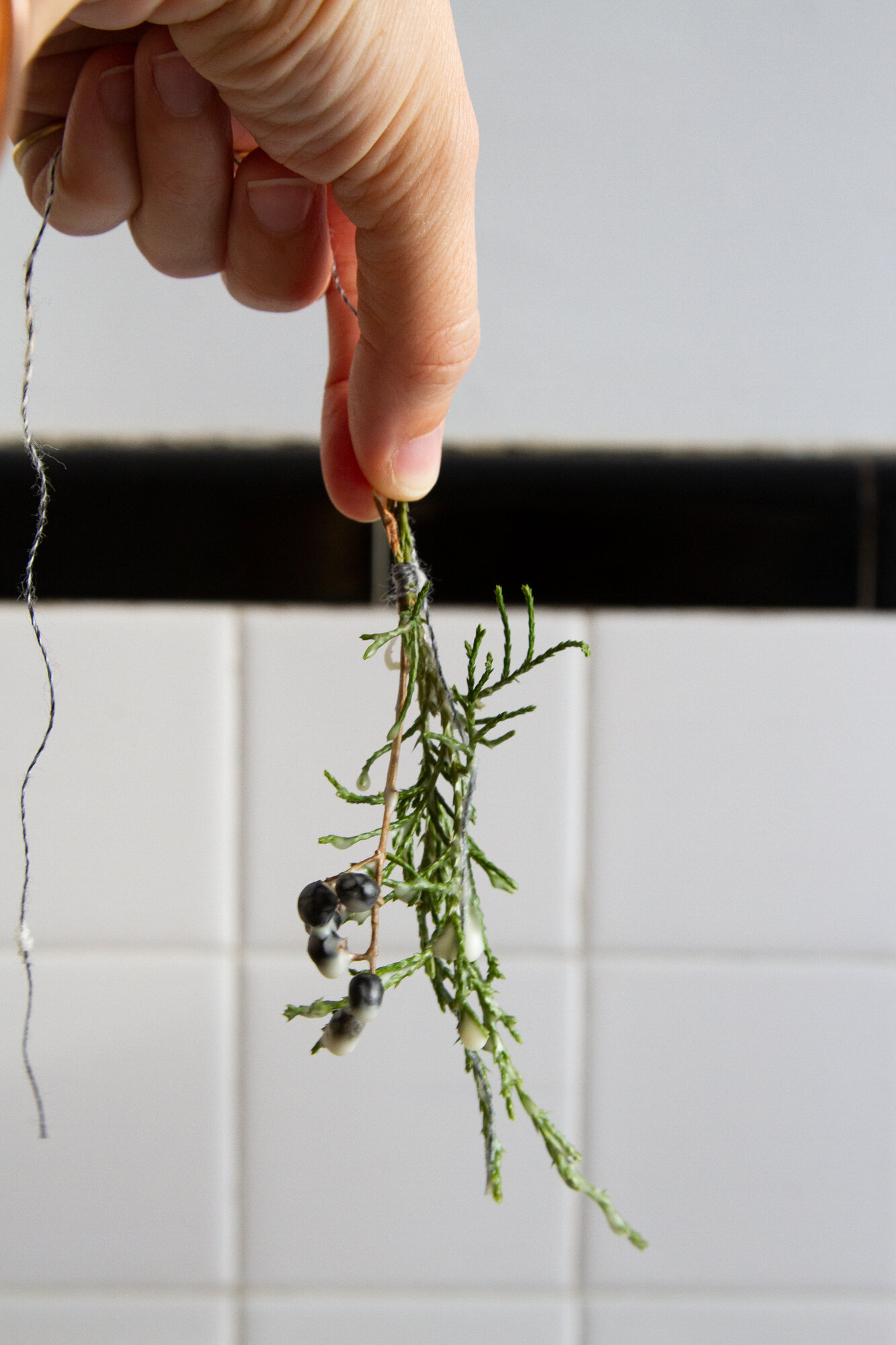
Years ago I wrote a post about making fire starters in an old egg carton, and carefully filling each nest with wax and cedar shavings and other combustible and fragrant wintry bits.
This is a simpler take on that project, dreamed up while impatiently waiting for wax to cool and candles to set. (Word to the wise: once you write a post about your husband’s hobby, you run the risk of being put in charge of the next batch of teacher gifts.)
I’m calling these fire starters but they could as well be called wax-dipped winter ornaments, or beeswax pinecones. They can kindle the fires I hope you or yours might get to burn as the light inches its way back to us after the winter solstice. They can also simply hang from a hook and catch the light and remind you of a time when your house smelled like heated up beeswax and you took a few minutes from an otherwise busy day to methodically dip pieces of what winter has to offer into molten golden wax. My point is, there doesn’t have to be a point except for the small bit of joy that’s standing over a warm stove and marveling at winter’s quiet beauty.
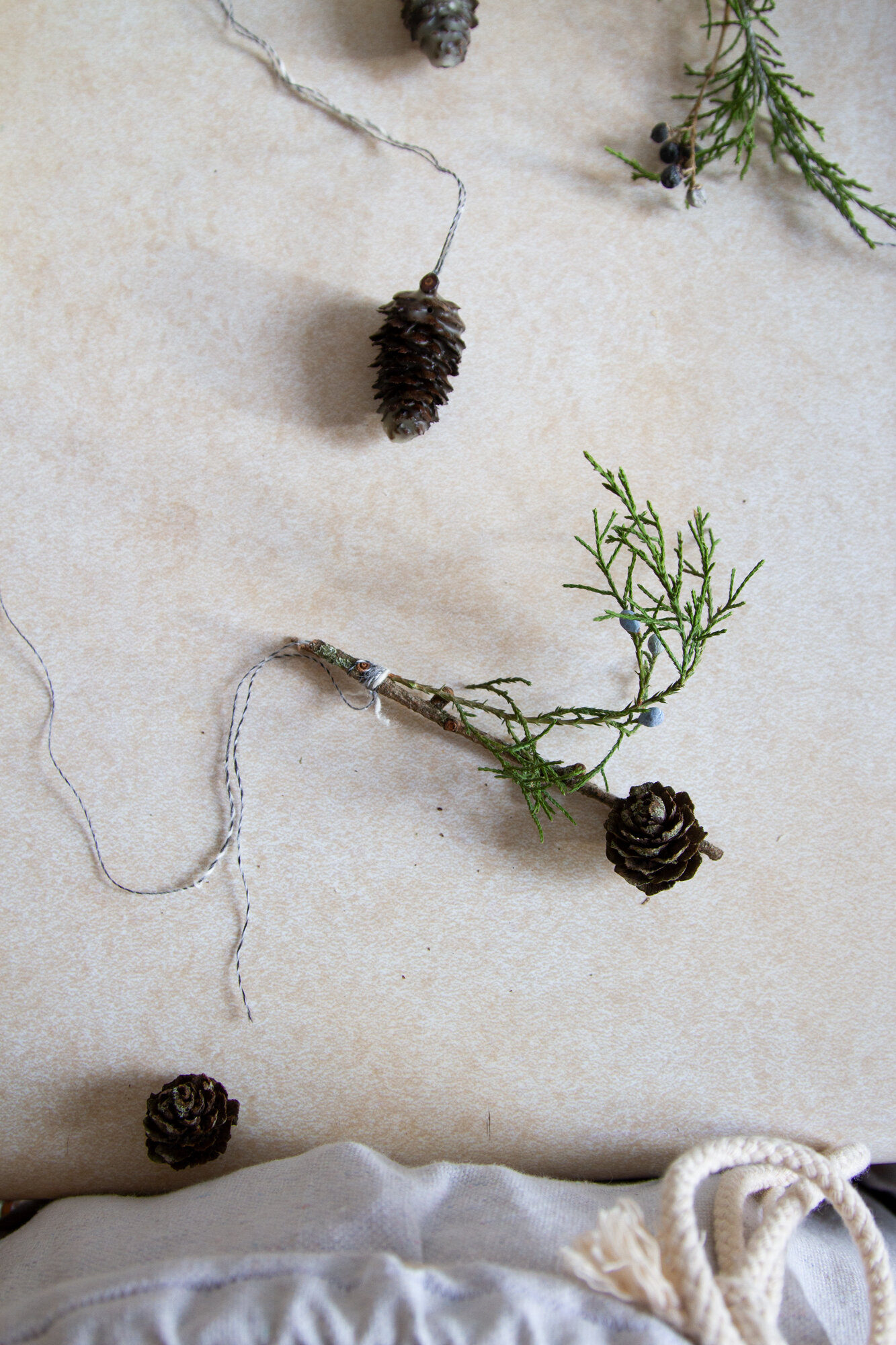
In case you’d like a guiding hand, here are the very simple instructions:
Materials:
+ Cotton string
+ Winter clippings
+ Beeswax
+ Thermometer (optional but helpful)
+ Double-boiler
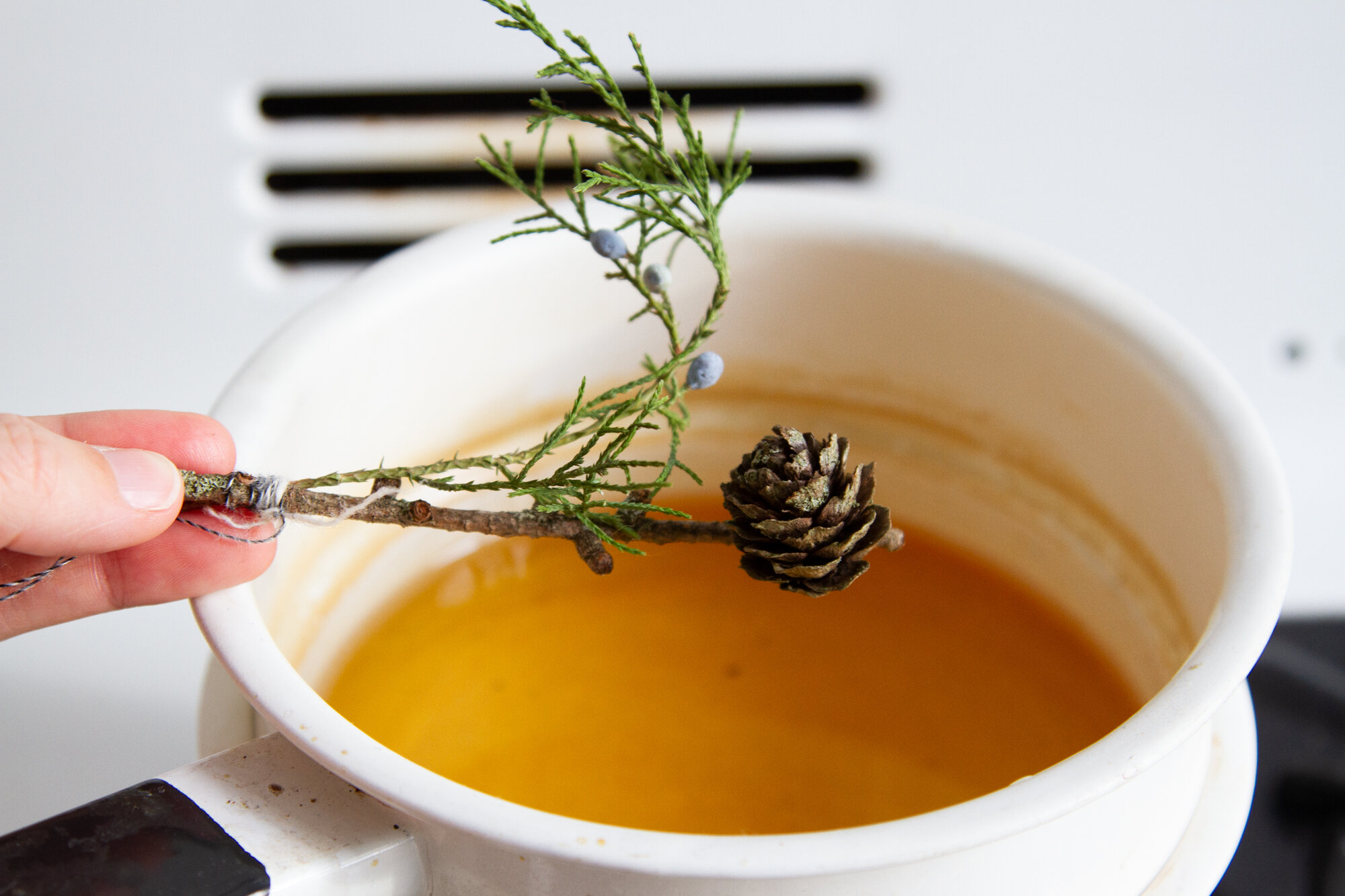
Directions:
+ Tie cotton string to the ends of pinecones, cedar sprigs, rosehips, or other wintry bits you might have collected.
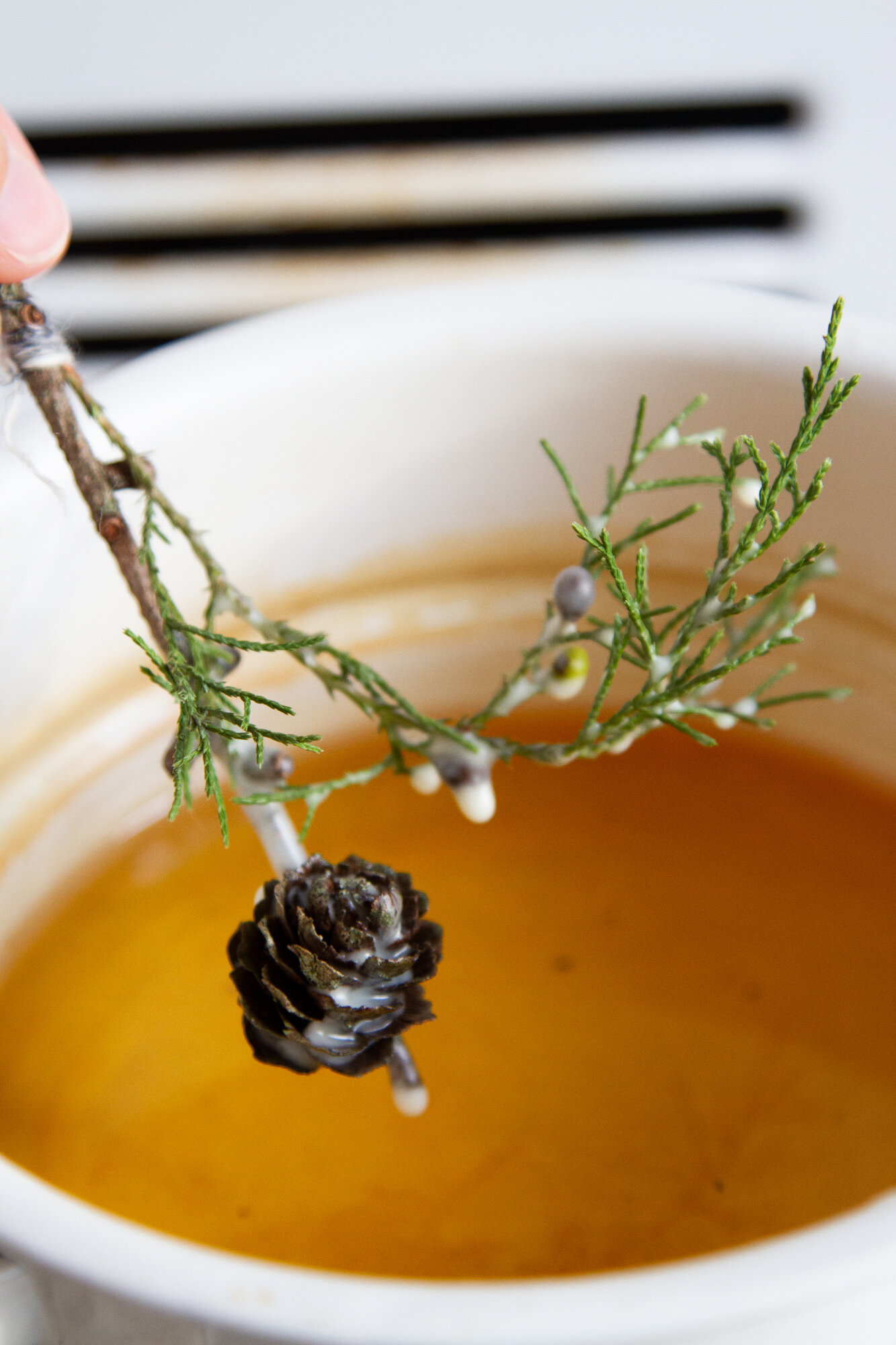
+ Heat beeswax in a double boiler, which can be as simple as a tin can in a soup pot with an inch of water. You don’t have to have a thermometer for this, but it is pretty helpful. Heating your wax until it reaches about 175 degrees F and then letting it cool to around 160 degrees F before dipping will yield the best results. If you dip when the wax is still too hot it will slip right off without really coating.
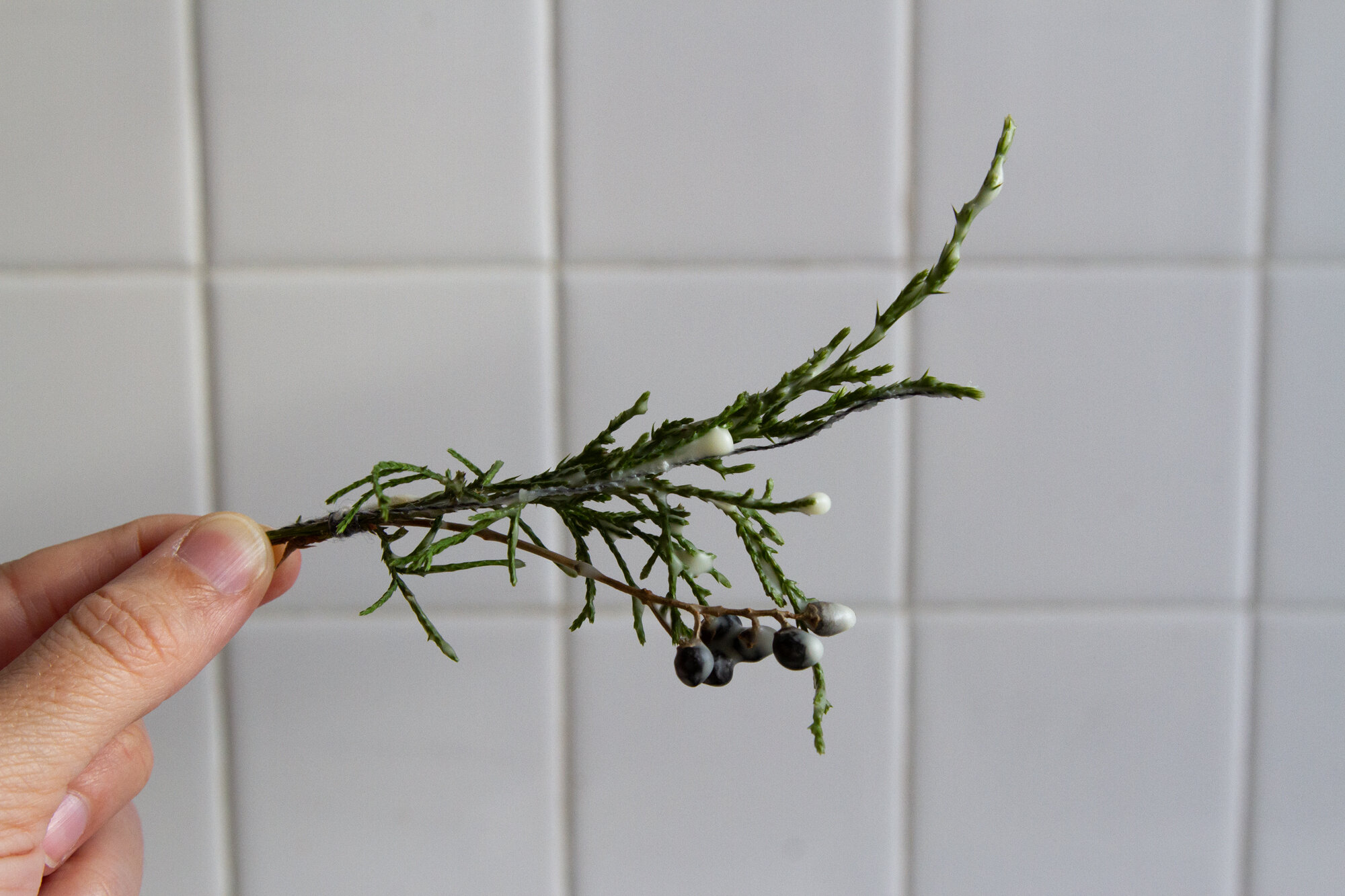
+ Holding the end of the string, dip your pinecones or berry sprigs gently into the wax, letting it drip over the pot. Wait until the wax changes color slightly and shows signs of cooling (just a few seconds) and dip again.
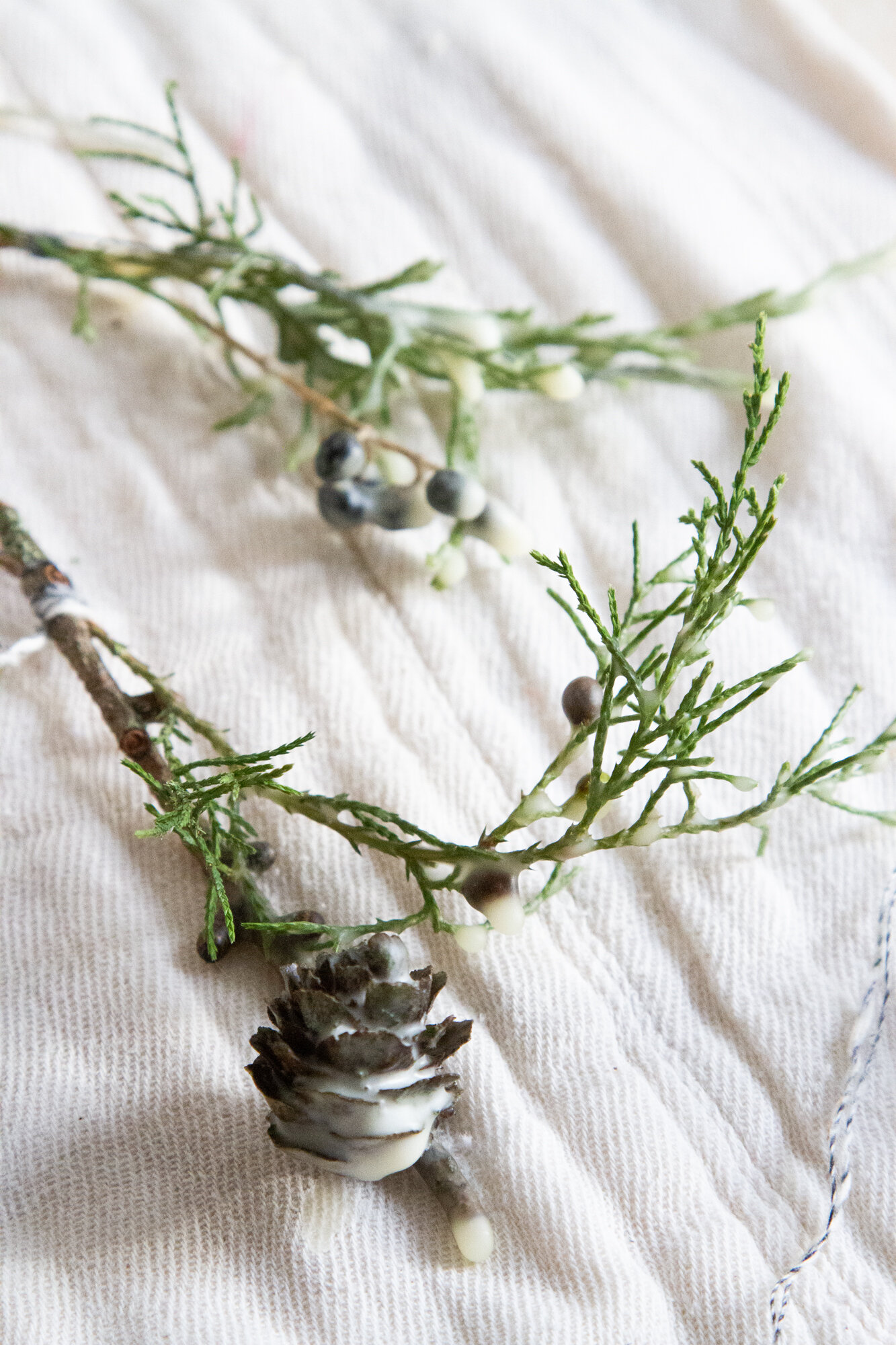
+ Dip your sprigs or pinecones as many times as you’d like (I think they tend to get too bulky after three dips, but that’s for you to decide) and set to cool on an old rag or tray.
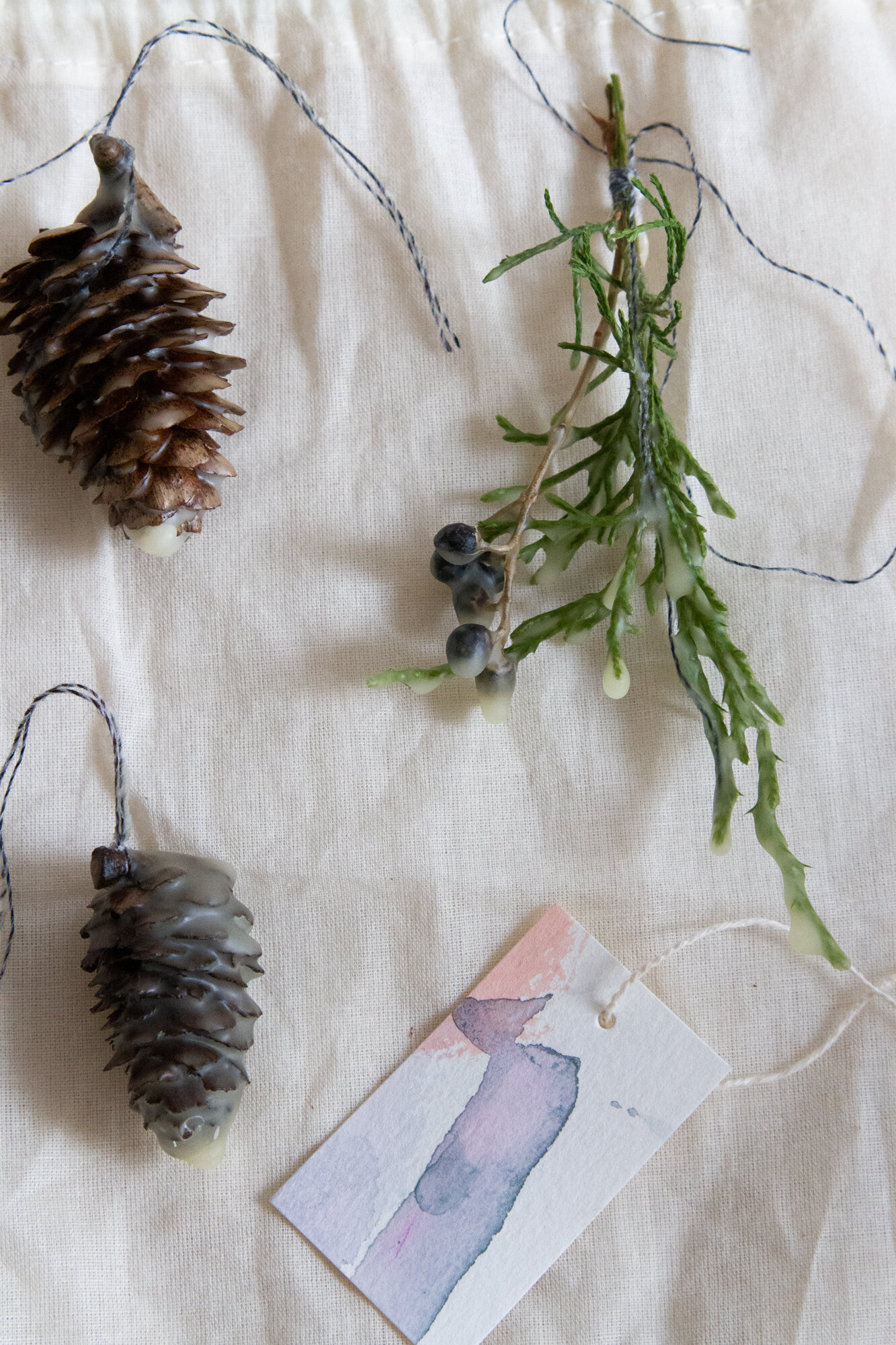
+ Give a bundle or bunch with a little note by way of explanation.
//
Speaking of enjoying winter beauty: don’t forget the joy of ice lanterns and ornaments.
If you’re looking to free up your hands for winter crafting, consider this trusty apron.
If you want to read something lovely about winter and getting through it, head to this piece by Elizabeth Dias in The New York Times.

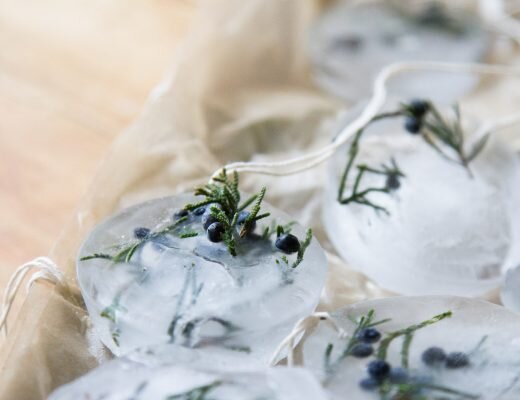
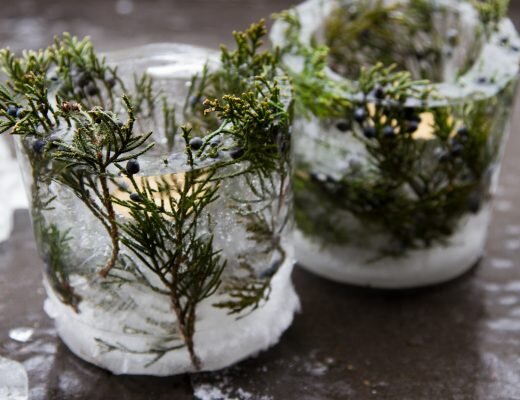

8 Comments
Here is a story: One year you made ice ornaments. You hung them from our crabapple tree. The UPS fellow, who bowed his head each time he tucked under its branches, loved them. He told us. He told his wife. He and she made them, too. The next year, he asked, “Hey, where are the ice ornaments? I love them!” This year he said, “I am retiring this year. I will never forget those ice ornaments. Stay well.”
Such a sweet simple idea!!
We always use dryer lint and bacon grease stuffed in a jar. This is much prettier! 🙂
Oh my gosh—I got a chuckle from this! Yours certainly would smell different than Erin’s!!
We just stuff dryer lint into toilet paper tubes. Thinking about getting a bidet this year so this method might be a nice alternative!
Do you happen to know what type of juniper this is? I’d like to grow some, but there are so many types!
Do the cedar leaf tips have to be dried before dipping in the wax?
Yes, would be helpful!
Comments are moderated.